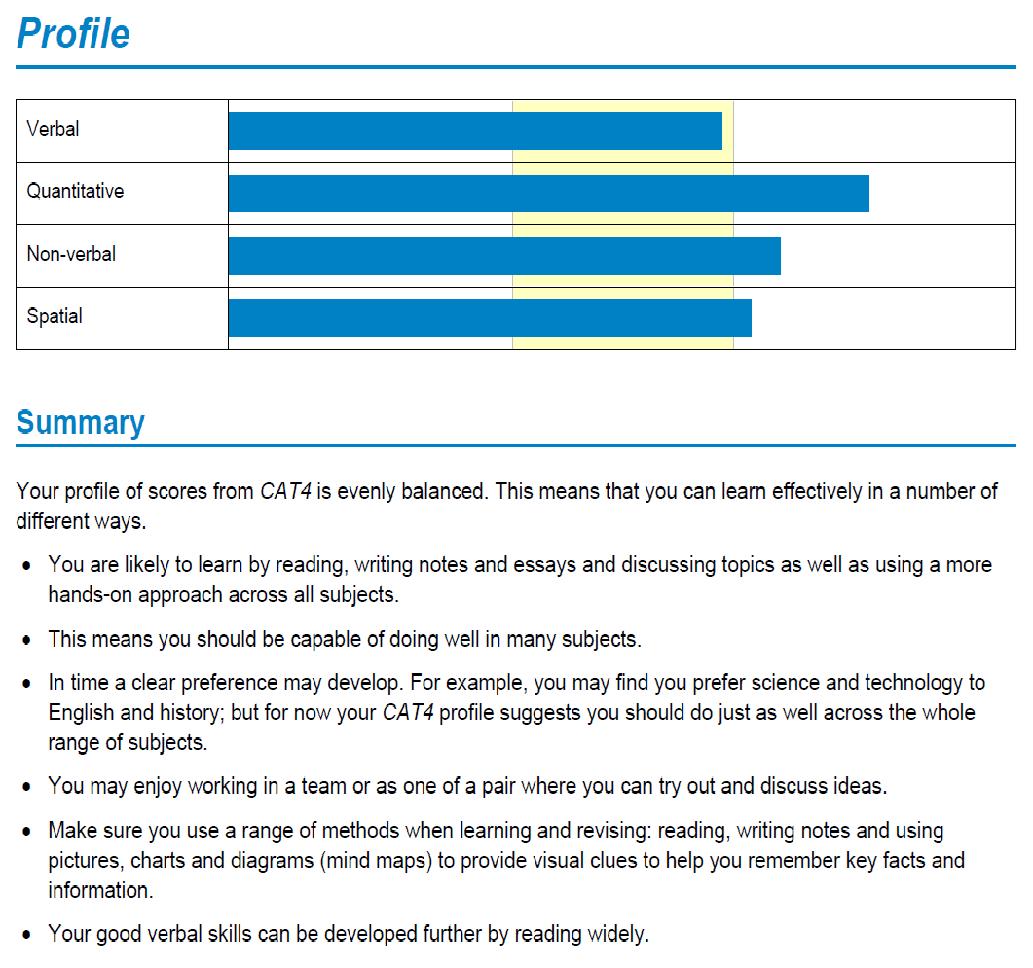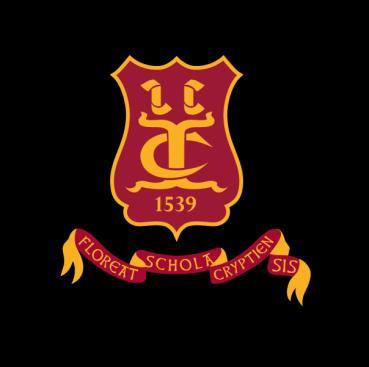GCSE Options Evening November 2024



✔The National Context
The English Baccalaureate

The 2 Crypt Pathways ✔Curriculum Choices & GCSE Subject Options
Destination information
Using data to help decisions
All GCSE courses are linear with all written exams sat at the end of Year 11.

Some GCSEs have Non-Examined Assessment (coursework). These tend to be the more practical subjects.
All GCSEs are graded from 9 to 1.
Grade 4 is considered a ‘pass’.
Grade 5 is a considered a ‘strong pass’.
Schools will be judged on how well their Y11 pupils perform in the best 8 GCSEs. All schools are given an overall score for their GCSE results, called their Progress 8 score.
The government introduced the English Baccalaureate which is a measurement of individual school and student success.

The Russell Group of leading research-led UK universities, have published information on GCSE and A-level subjects which they felt would be good preparation for their undergraduate courses. These are called ‘enabling’ subjects.
The Ebacc subjects form this list.

In order to achieve the English Baccalaureate, in addition to studying English, Maths and science, students need to study:
⮚ A modern foreign language (French, German or Spanish)
⮚ History or Geography
We encourage pupils to take options that allow them to achieve the Ebacc so that they keep as many university options open to them as possible.

There is a core curriculum that all pupils study.
Pupils will then choose 1 of two different pathways to follow in Years 10 and 11.
Both pathways will lead to at least 9 GCSEs
All pupils must study:
o Mathematics
o English literature and English language

o Science (either as combined science or triple science)
o Geography or history
Additional elements on a pupils timetable:
o Personal education development lessons (PED) – covering social, moral, spiritual and cultural themes; careers and other key skills to ensure each pupil’s personal development.
o Physical education (PE)
o Games
o Religious studies - covering critical thinking
All pupils must study:


In Triple Science pupils are taught 3 separate sciences:
• Biology
• Chemistry
• Physics Each science is allocated 5 periods (so a total of 15 periods)
We would strongly recommend the triple for any pupil considering any A-Level in Science, a scientific career, or competitive courses.

• Students are taught sciences as 3 separate courses, by subject specialists.
• There is a total of 10 periods allocated to combined science.
• Some of the most challenging content is removed from the combined science.

Please feel free to contact our Heads of each science for more information:
• Chemistry – Mrs Gee
• Biology – Mr Passmore
• Physics – Mrs John

• We strongly recommend that all pupils take a language at GCSE.
• Year 9 pupils currently study either French, German or Spanish.
• Pupils can only opt to take a language at GCSE that they have studied in Year 9.
• If your child does study a second language outside school then we may be able to facilitate them in taking the exams in year 11.

• Students have to opt for either history or geography
• Taking a humanities subject ensures that pupils retain a broad curriculum and increases options at A-level.
• Students can study both subjects if they wish
SUBJECTS IN BOLD =
Ebacc Subjects
* = Practical Subjects
ART*
BUSINESS STUDIES
COMPUTER SCIENCE
DESIGN TECHNOLOGY *
DRAMA STUDIES*
FOOD TECHNOLOGY*
FRENCH
GEOGRAPHY
GERMAN
HISTORY
MUSIC*
PHILOSOPHY & ETHICS
SPANISH
SPORTS STUDIES*


• Business is a new subject to all pupils.
• We will be offering taster sessions in Term 3 to help students decide if the subject would suit them.
• You can still study Business at A-level even if you have not studied it at GCSE (you need a humanities subject)

• Computer science is an Ebacc Subject
• In order to study Computer Science, you need a Grade 3 (Gold) in the Entry Level Computer Science Award.

• We offer top set mathematicians to take a Further Maths qualification.
• This is optional, and entries are decided in Y11 in consultation with pupils
• It is particularly useful for pupils thinking of studying A-level Maths.
There are a total of 50 periods within a 2-week cycle

Subject
English Language & English Literature 7 periods in Y10 8 periods in Y11
Mathematics 7 periods
Combined Science 10 periods in total
Separate science (Biology, chemistry, physics) 5 periods (total of 15)
All option subjects 5 periods
Personal education development lessons 2 periods in Y10 1 period in Y11
Religious Education 1 period in Y10

⮚Think carefully about the type of subject which suits your child
⮚Aim to get a balance of types of subject so your child will have a broad skill base
⮚Think carefully about what your child wants to do after GCSEs
⮚Look at entry requirements at A-level for specific subjects

⮚Our current entry requirements are on our website under ‘Prospectus’, then look at ‘Sixth form information booklet’
⮚These are subject to change – however they will give you an idea of entry requirements.
Don’t let your child…
⮚

do.
Or
⮚On the basis that a particular teacher is taking them at the moment

We recommend that you take a maximum of two practical subjects as the burden of coursework for pupils is significant.
The practical subjects are: ART*
DESIGN TECHNOLOGY *
DRAMA & THEATRE STUDIES*
FOOD TECHNOLOGY*
MUSIC*
SPORTS STUDIES*

The Options timeline has already been shared with you and is on the website. Key dates:
•
Term 2 mid year tests
• Term 3 subject talks in lessons
• Term 3 Year 9 reports
• Term 4 parents/carers evening
• March 18th Deadline to submit choices
• April letter home to confirm choices for Y10/11

• Our aim is to fulfil all pupils option choices.
• Occasionally this is not possible.
• If we can not fulfil your options, we will initially discuss reserves with the pupil, and we will contact parents.
On a normal year all students in Year 9 remain in school to study GCSEs in Years 10 and 11.

Students in Year 9 do have the option to apply to study at the SGS Berkeley Green UTC https://academytrust.sgscol.ac.uk/sgs-berkeleygreen-utc
If you are considering this option please speak to me or email me so we can help you.
Students in Year 10/ 11 will be supported with Post-16 Options.

Most Crypt Students will remain in Crypt Sixth Form to study A Levels, a few students are supported to help gain an apprenticeship, or study in a local college
Students in Year 12/ 13 will be supported with Post-18 Options: Most Crypt Students go on to university with a growing number considering and taking up Apprenticeships
• Mid Year Exam data should help you understand where you child is relative to their year group.

• 60-65% of our GCSE grades are grades 7-9
• 99-100% of our GCSE grades are grades 4-9
• The majority of students will be suitable for the majority of courses.
• Use the working levels to help you identify strengths and weaknesses in practical subjects.
If you are unsure whether a course is suitable for your child please speak to their teacher at parent’s evening

• These are taken by the students at the start of Year 7, in September. If a student is away or does not start in September of Year 7, then they will take the test at a later date.
• Pupils get tested in 4 areas:
• Verbal (reasoning with words)
• Quantitative (reasoning with numbers)
• Non-Verbal (reasoning with shapes and numbers)
• Spatial reasoning (thinking with and mentally manipulating precise shapes)
• The document you have summarises the results.
• Using historical data, you have also been given a guide to what outcome is likely for each student for a variety of subjects at GCSE.
• Look at the second page of the report.

• This outlines each pupil's profile for each test.
• It suggests where their strongest area is and suggests how they might learn – this is useful when developing revision techniques for GCSE preparation.
Below average (left of yellow zone) Average (in yellow zone)
Above average (right of yellow zone)


• Verbal reasoning – this is needed in subjects like English, History, Languages or any subject where you need to read and write carefully.
• Quantitative reasoning – this is needed in subjects like Maths, Science, Geography, DT and any subjects where you need to use formulae, diagrams and graphs.
• Non-Verbal reasoning – this measures the student’s general problem solving skills to solve problems in unfamiliar situations.
• Spatial awareness – comes naturally to most students. It is the ability to mentally manipulate images and perceive patterns between them.
• The fourth page shows the likely outcomes at the end of GCSE in selected subjects for a student.

• These subjects are supplied by the testing company NFER National Foundation for Educational Research (some of the subjects we do not offer).
• The indicators give a statistical prediction, not a prophecy of the student’s actual results.
• The student’s outcomes will also be determined by the student’s motivation and effort.

www.gl-assessment.co.uk

PLEASE REMEMBER THAT
1.The indicators give a statistical prediction, using historic data.
1.Subject teachers will set a Y11 target grade for each student based on previous performance and knowledge of the student.
1.The student’s motivation and effort play a HUGE part in the final exam outcomes.


On the website you will find:
⮚Frequently asked questions
⮚Copies of the options pathways (hard copy in pack)
⮚Copy of the booklet (hard copy in pack)

• Talk to subject teachers at parents evening.
• Talk to form tutors
• Speak to Mrs Duxbury (Head of Year)
• Talk/Email to Mr Biggs about any timetable-related issues, or if you need any further support with options.
• Careers program to support students https://www.cryptschool.org/personal-development/careers information-guidance

• Look out for articles about careers in the Heads weekly letter
• students can book appointments to see the careers advisor or ask their form tutor to do this for them.
• Mrs H Michaluk- Careers Advisor – hmichaluk@crypt.gloucs.sch.uk
• Mr C Germaine – Careers Leader – cgermaine@crypt.gloucs.sch.uk

Read options information booklet
Read the ‘frequently asked questions’ (on website)
Watch the careers recording by Mr Germaine (on website)
Checked what GCSEs are needed for A levels/ apprenticeships of interest
Linked subjects to career ideas
Match strengths/interests to option subjects of interest.
Research new subjects
Returned options form by the deadline
Please stay behind if you have any questions